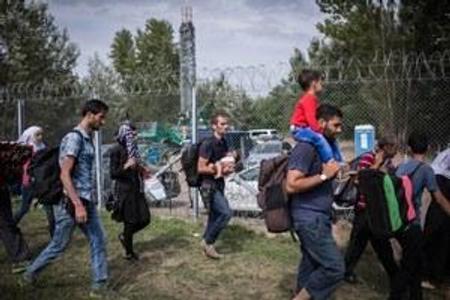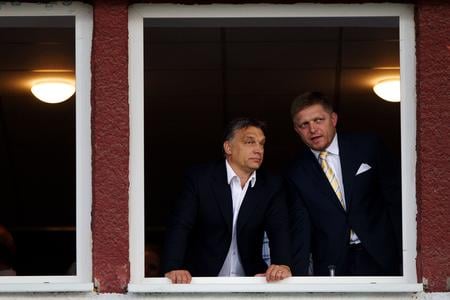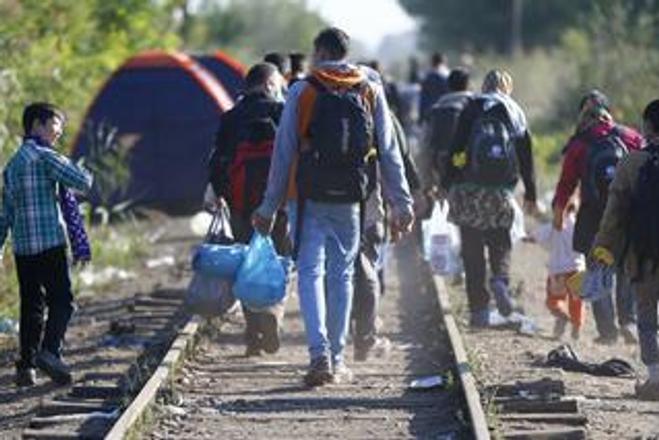Slovakia sued an EU institution about the redistribution of refugees amid a national election campaign fuelled by anti-migration sentiments. The lawsuit is now dead – but so will the redistribution mechanism soon.
The Luxembourg-based European Court of Justice (ECJ) ruled on September 6, 2017 on the dismissal of two lawsuits, filed by Slovakia and Hungary against the EU Council.
In their suits, the two countries protested the introduction of a quota mechanism to redistribute refugees among EU member states. The EU Council, in its version gathering interior ministers (Justice and Home Affairs Council), passed this decision amid the peak of the migration crisis in September 2015. The Slovak government declared that the Council had violated the principles of institutional balance, legal certainty, representative democracy and proportionality in the process. The ECJ disagreed, ruling that the EU body was entitled to make its decision the way it was made.
“The ECJ ruling does not offer any new quality, the court only expressing a different legal opinion,” Prime Minister Robert Fico said in his reaction to the news on the dismissed lawsuit. The Slovak government respects the different legal opinion of the court, he added.

Slovakia and the quotas
The mechanism was adopted in September 2015. At that point, the number of refugees arriving to Italy and Greece were swelling and there was a massive flow of people through the so-called Balkan route, passing also through Hungary. The EU Council decided each member state should take in a certain number of people, based on its quota.
It was meant to relocate a total of 120,000 people. Under the quota mechanism Slovakia should have accepted 652 people from Greece and 250 from Italy. Instead, the nation has accepted 16 refugees as of July 2017, as Interior Minister Robert Kaliňák confirmed during the press conference in reaction to the dismissed lawsuit.
Hungary and Poland have not accepted any migrants within the mechanism, while the Czech Republic stopped accepting refugees in August 2016. All three countries, partners of Slovakia within the Visegrad Group, are facing legal action from the European Commission.
Kaliňák labelled the quota mechanism "an exceptional failure", and said that it had not worked out and only about 16 percent of refugees were relocated.
Foreign Minister Miroslav Lajčák commented that “developments over the past two years have answered the question of whether the quotas work or not”, the TASR newswire quoted him.
Emergency situation
Slovakia officially submitted a lawsuit against the plan on December 2, 2015.
One of the main complaints was that the mandatory quotas were adopted over the resistance of several countries. Four countries voted against the plan at the EU Council: Slovakia, Hungary, the Czech Republic, and Romania. But only Slovakia and Hungary took legal action.
Fico repeatedly labelled the Council decision illegitimate, claiming that it violates the rights of the European Parliament and national parliaments. Slovakia and Hungary insisted in their lawsuits that the quota mechanism should have been passed unanimously, rather than with a simple majority vote.
The ECJ claims that the EU is entitled to making such exceptions in the legislative process, saying that the quotas help relieve the considerable pressure on the asylum systems of Italy and Greece. The EU institutions are entitled "to adopt all provisional measures necessary to respond effectively and swiftly to an emergency situation characterised by the sudden inflow of displaced persons", the court wrote.
"That mechanism actually contributes to enabling Greece and Italy to deal with the impact of the 2015 migration crisis and is proportionate," the ECJ argues.

The ECJ ruling comes on the heels of the statement of its Advocate General, Yves Bot, who issued a non-binding proposal to dismiss the lawsuits on July 26.
EU core is now in focus
By the time Slovakia filed its lawsuit, the flow of migrants to Europe had slowed down due to the coming winter, and Europe was still reeling in the aftermath of the November 2015 terrorist attacks in Paris.
In Slovakia, the local political scene was engaged in a heated political campaign ahead of the March 2016 parliamentary election. The anti-migration and anti-refugee rhetoric was part of it. Smer’s critics, including its current coalition partner Most-Hid, accused the prime minister of exploiting the topic for his political campaign.
In his speeches at the national level, Fico repeatedly branded the refugee relocation quotas as nonsense. Then his government moved to sue the EU Council, Hungary joining afterwards.
Currently, the prime minister mostly stresses that it is necessary for Slovakia to be part of the EU core (regarding talks about a multi-speed Europe).
“Fico will look for any sort of deal with the EU,” Dariusz Kałan, a Central Europe correspondent based in Bratislava, told The Slovak Spectator. He added that it is a good time to be pro-European in Slovakia, unlike in Hungary, which is going through a tough election campaign. “I have no illusions. If Fico were struggling for votes today, he would be the first to sling mud at the EU.”
No consequences?
At the September 6 press conference PM Fico merely stressed the fact that the refugee redistribution mechanism expires on September 26, because it was meant as temporary.
He also said that Slovakia is facing no penalties due to its stance against the quotas, and added that the government is determined to seek other ways of expressing solidarity.
"Our stance towards the quotas has not changed," Fico said.




 (source: AP/TASR)
(source: AP/TASR)